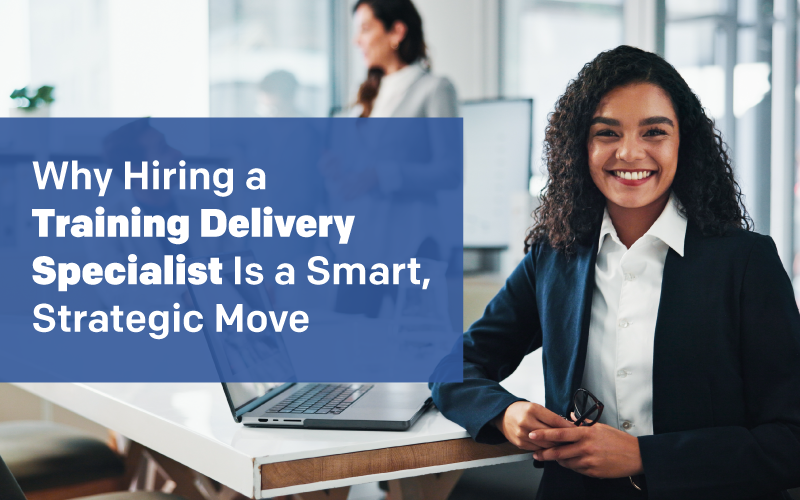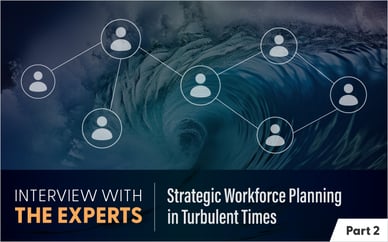If you’re serious about upskilling at the speed of business, add one role to your talent strategy: the training delivery specialist (TDS). Think of this person as a professional facilitator who turns learning plans into business outcomes—keeping sessions engaging, inclusive, and measurably effective across classrooms, virtual rooms, and hybrid formats.
Why this role matters now
Learning demand is rising even as bandwidth is shrinking. The Association for Talent Development’s (ATD) latest benchmark shows organizations spent $1,283 per employee on learning in 2023, up over the prior year, while average learning hours per employee declined to 17.4 hours. That means every hour in the (virtual) classroom has to work harder.
At the same time, the half-life of many skills keeps compressing, and leading analysts note that technical skills need to be refreshed in as little as two to four years, sometimes faster in AI-heavy roles. Upskilling at scale isn’t optional.
And inside organizations, L&D priorities are crystalizing: alignment to business goals, upskilling, and retention all top the list in LinkedIn’s Workplace Learning Report (surveying 1,636 L&D leaders and 1,063 learners).
What a training delivery specialist actually does
A TDS is more than “a great presenter.” The best specialists:
- Engineer engagement. They apply adult-learning principles (advance organizers, spaced questioning, purposeful breakout design) to raise participation and recall—critical when virtual fatigue is real and sessions must land the first time. Systematic reviews in simulation-based education show facilitation quality materially influences learning outcomes; it’s the difference between “content covered” and “skills acquired.”
- Maximize transfer. Decades of research remind us that training transfer is not automatic; context, practice, and follow-through matter far more than slide count. Skilled facilitators build transfer bridges—job-relevant scenarios, post-session challenges, and manager prompts—so skills show up at work.
- Scale consistency. When you’re rolling out a new system or process across locations, the TDS keeps delivery consistent, learning objectives met, timing right-sized, and feedback loops captured; so you don’t get twelve versions of the same class.
- Protect precious SME time. Subject-matter experts (SME) can remain exactly that, experts, while a TDS handles delivery craft, classroom dynamics, and logistics.
The business case
- Improve ROI on a growing investment. Corporate training budgets remain substantial; Training Magazine’s 2024 Industry Report highlights ongoing U.S. spend and staffing focused on building capability. If you’re already funding learning, professionalizing delivery is a force multiplier.
- Accelerate reskilling at scale. McKinsey finds large segments of the workforce are seeking upskilling, while many roles face widening skills gaps; orchestrated, high-quality delivery helps you meet that demand without burning out internal teams.
- Boost engagement and retention. SHRM’s 2023–2024 study links growth opportunities to overall employee well-being—an essential retention lever. Well-facilitated learning experiences turn “mandatory training” into visible career momentum.
- Reduce execution risk in critical rollouts. Whether it’s compliance, safety, or new-tech adoption, a TDS reduces variance in learner experience and post-training performance—vital when the skill half-life is short and the business can’t afford rework.
How to spot a great facilitator
- Design fluency. Can they translate outcomes into activities (not just slides) and vary modalities for hybrid/virtual cohorts?
- Measurement mindset. Do they define success metrics (reaction, learning, behavior, results) and gather data beyond smile sheets?
- Transfer tactics. Look for strategies that connect managers, peer practice, and workflow tools to sustain behavior change.
- Presence and adaptability. The ability to read a room (or a virtual presentation), rebalance time, and troubleshoot tech with composure.
- Industry literacy. They don’t need to be your SME, but they should establish credibility quickly and contextualize examples.
Build versus augment?
You can hire and develop facilitators internally, or you can augment with seasoned specialists who ramp fast, flex to demand spikes, and bring a cross-industry perspective. Given rising spend per learner and compressed learning hours, many organizations blend the two: keep strategic programs in-house and use specialized facilitators to deliver at scale, regionally or globally.
How ELB Learning can help
ELB Learning’s Talent Staffing and On-Demand Experts service places proven training delivery specialists inside your programs, on-site or virtual, to deliver consistent, learner-loved sessions and stronger transfer. Our facilitators partner with your L&D team to:
- Run high-stakes product, systems, and leadership rollouts
- Standardize delivery across locations and vendors
- Embed measurement and post-session reinforcement
- Free SMEs to focus on innovation and strategy






%20And%20How%20Does%20it%20Help__Blog%20Featured%20Image%20800x500.png?width=388&name=What%20Is%20Recruitment%20Process%20Outsourcing%20(RPO)%20And%20How%20Does%20it%20Help__Blog%20Featured%20Image%20800x500.png)
